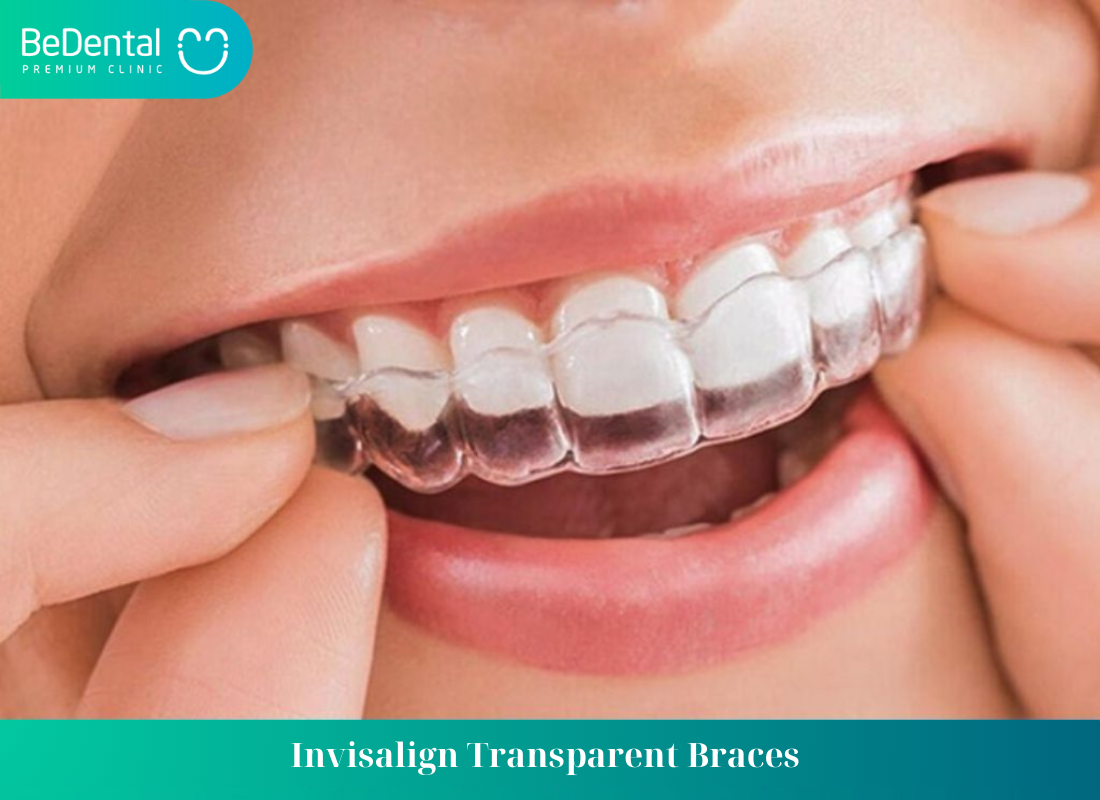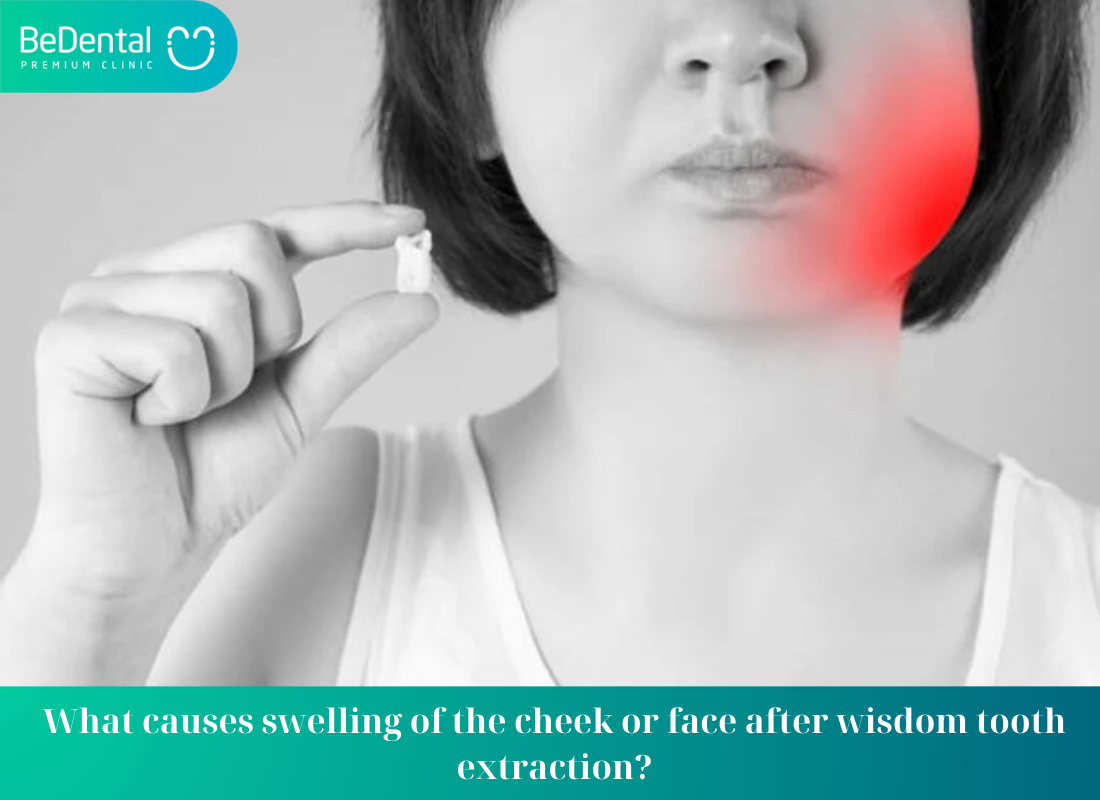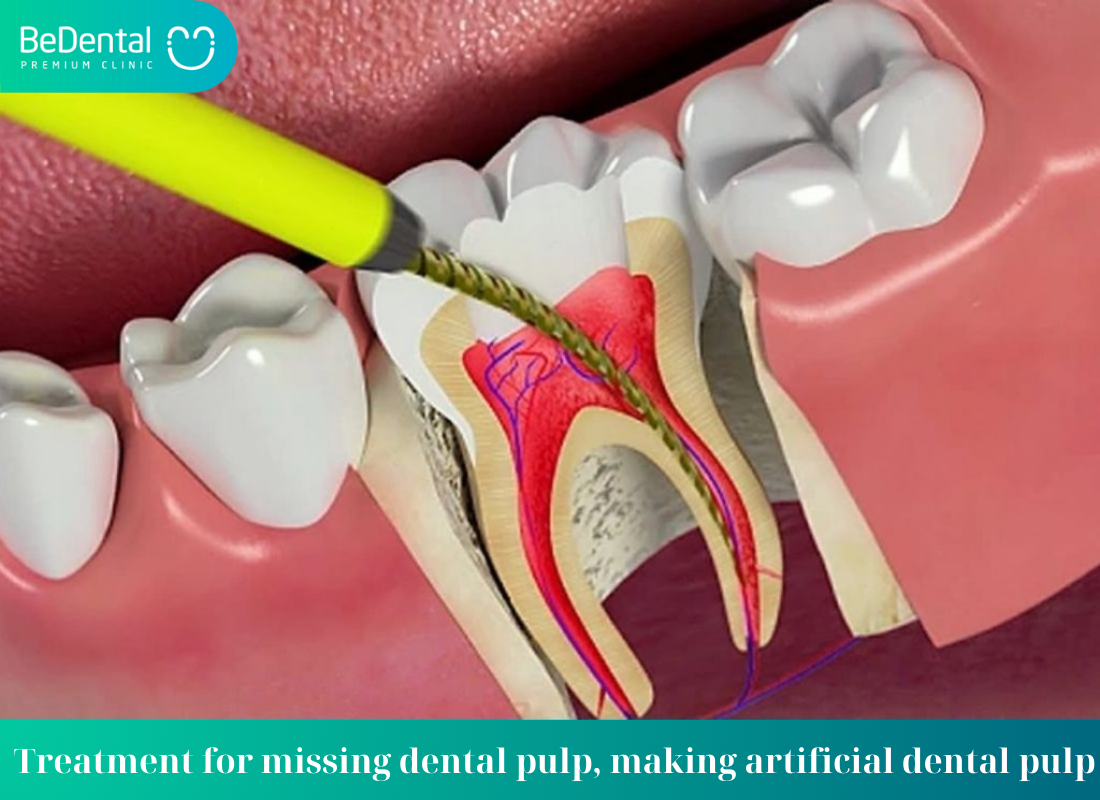How many teeth do humans have? That’s a question many people wonder about. In the article below, BeDental will provide you with the accurate answer!
How many teeth do humans have?
According to practical studies, during adulthood, humans will have a total of up to 32 teeth in their dental arch.
This number includes two pairs of wisdom teeth in the upper and lower jaw, 8 premolars (4 in the upper jaw, 4 in the lower jaw), 4 canines (2 in the upper jaw, 2 in the lower jaw), 8 incisors, and 12 molars.
Humans may grow teeth twice in their lifetime. Once as baby teeth and then as permanent teeth. The number of teeth during these two periods is different. Specifically:
How many teeth do children have?
A child’s baby teeth will start to develop around 5 months old and continue until they are fully developed at around 3 years old.
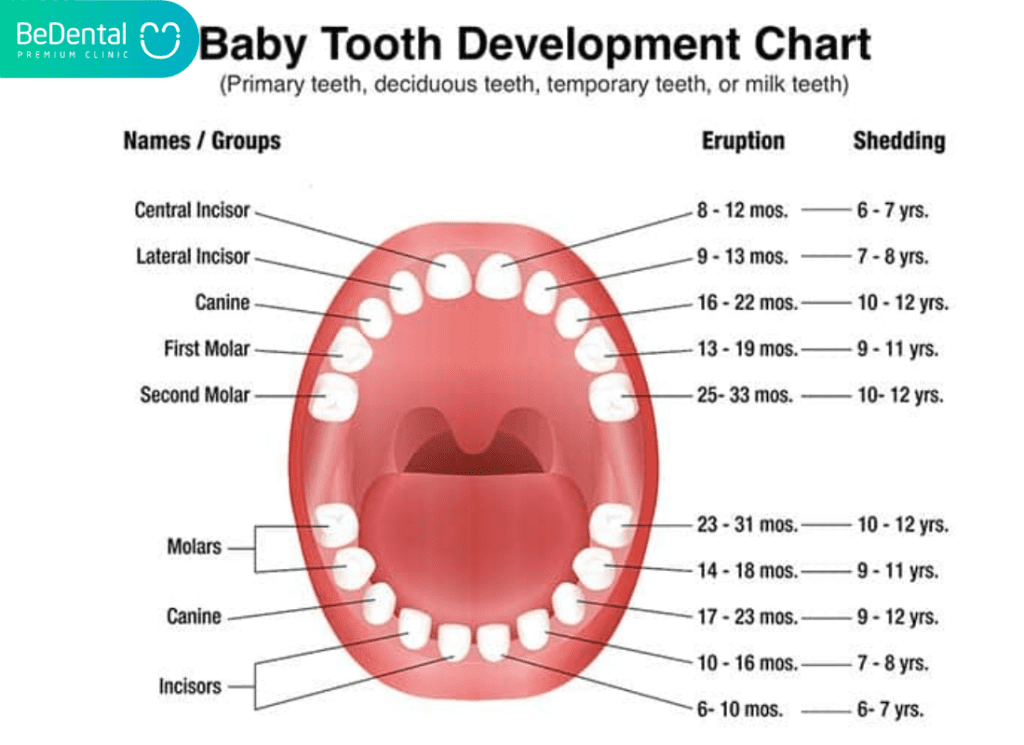
Teeth that appear in a child during the early period are called baby teeth. The set of baby teeth consists of 20 teeth evenly distributed in both the upper and lower jaws. It includes:
- 4 incisors
- 2 canines
- 4 molars
When a child reaches 6 months old, the process of replacing new teeth begins. The new set of teeth that replace the baby teeth will have a different structure.
How many teeth do adults have?
How many teeth do adults have? According to practical studies, a full set of adult teeth usually consists of 32 teeth (including the 8 wisdom teeth).
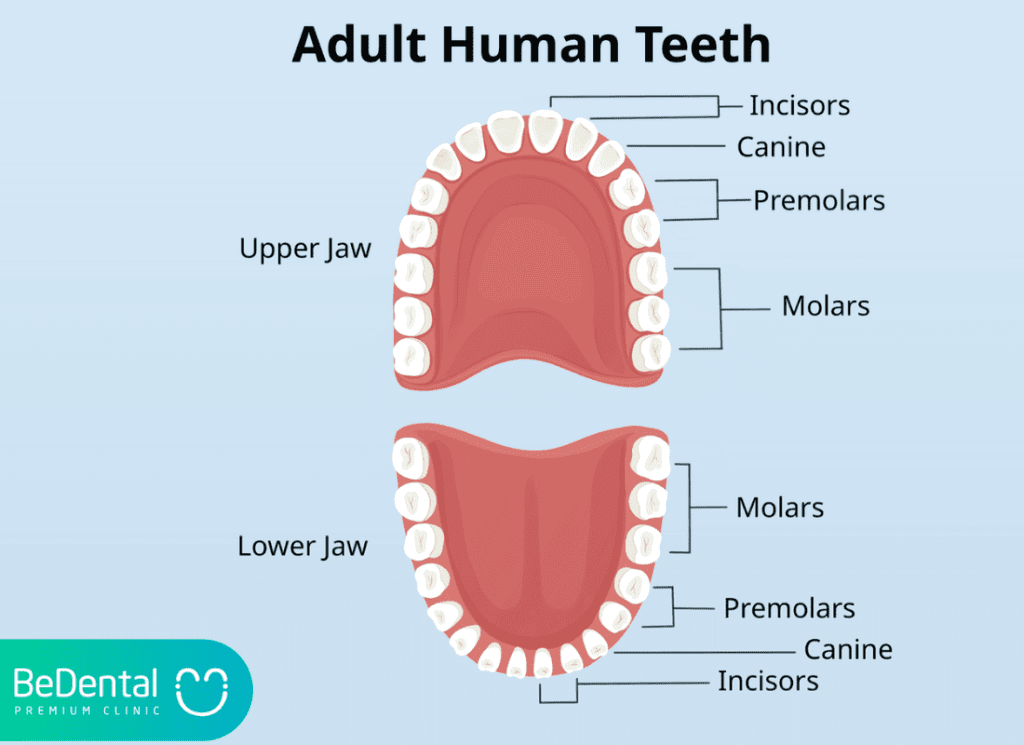
32 teeth can be divided into 2 arches. Specifically, each dental arch has:
- 4 incisors located in the center of the arch and on the upper surface.
- 4 canines, one on each side between the two sides of the arches.
- 2 premolars and 3 molars towards the back, with 5 on each side.
In all 3 molars, there is the 8th wisdom tooth. This tooth grows very slowly and often grows in the wrong direction (there are also cases where there is no wisdom tooth or a missing wisdom tooth). Due to its limited function in the corner of the jaw and the high likelihood of growing in the wrong direction, the 8th tooth is usually replaced.
How many wisdom teeth do humans have?
Typically, humans have four wisdom teeth, two in the upper jaw and two in the lower jaw. However, not everyone has all four wisdom teeth, and this number can vary from person to person. Some may have only one or two wisdom teeth, while others may have none at all.
Types of teeth & functions of each type
Incisors (8 teeth)
With 8 incisors (4 upper, 4 lower) located in the “front” of the dental arch, incisors play a significant role in each person’s smile and facial appearance.
Moreover, incisors also play a role in helping canines break down food before it reaches the molars for chewing.
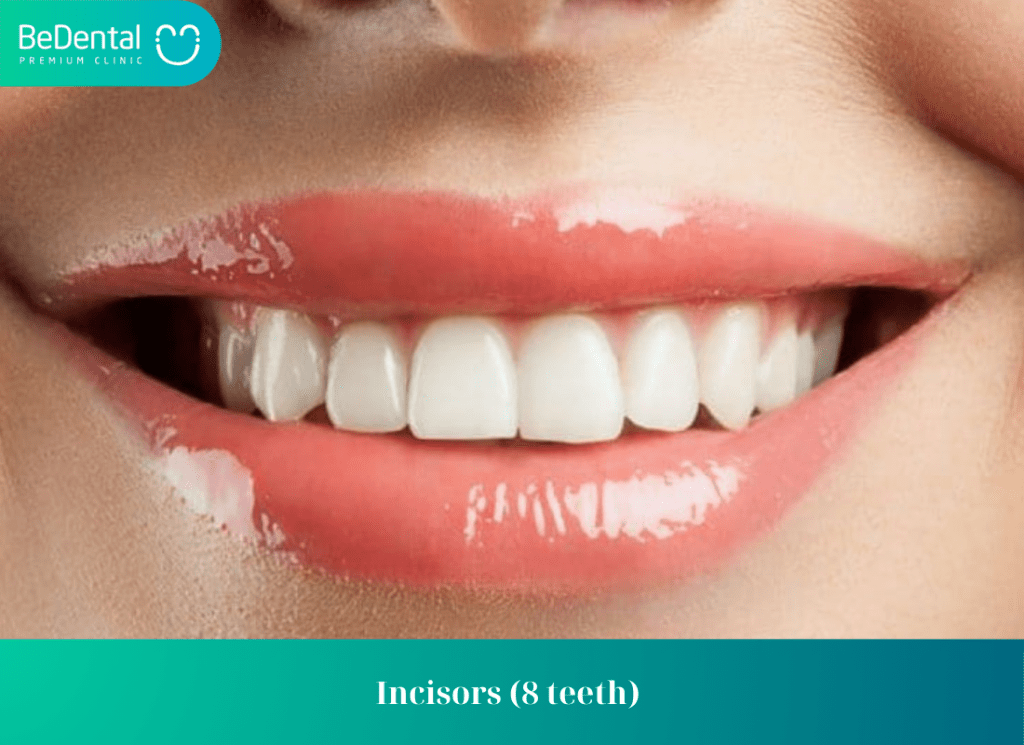
In addition, incisors have a significant impact on a child’s communication or speech. Therefore, they are essential teeth as they perform many functions.
Canines (4 teeth)
Alongside the incisors are two pairs of canines, with 2 on the upper jaw and 2 on the lower jaw. These teeth are located at the corners of the mouth and are quite similar to the teeth of some carnivorous animals.
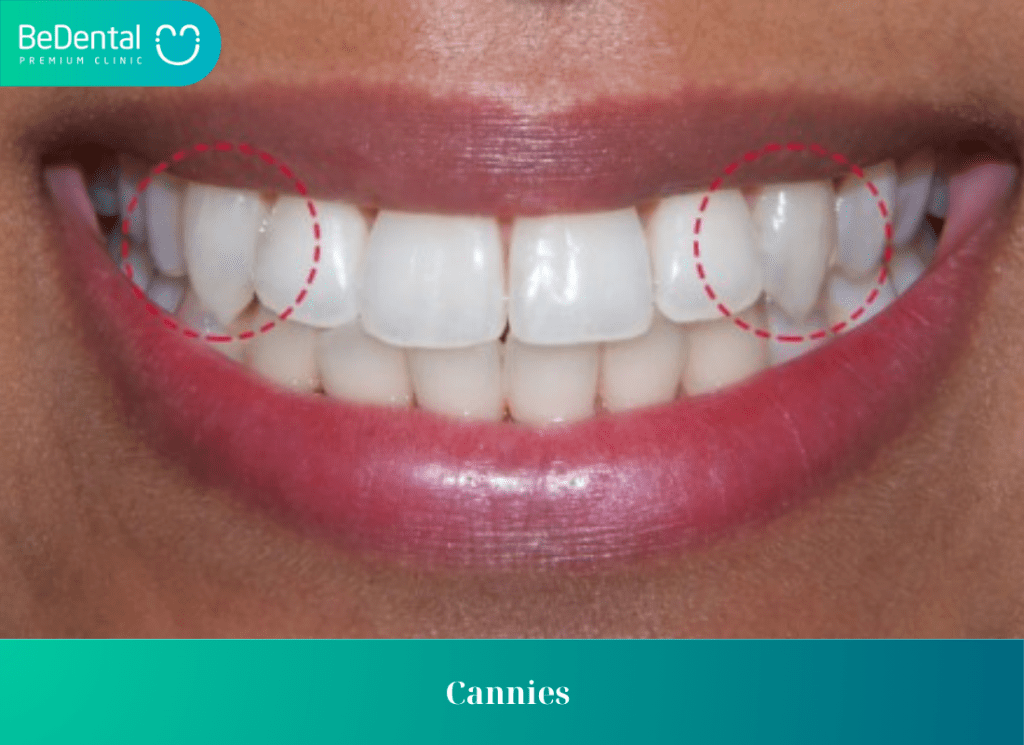
Canines are primarily responsible for cutting food into smaller pieces. Additionally, they also play a part in influencing the expressive character of the smile on the face.
Premolars (8 teeth)
Premolars (bicuspids or bicuspids) are also known as small molars (tooth number 4 and number 5). They serve both functions of swallowing food and chewing food, making them a group of teeth that support the molars and canines.
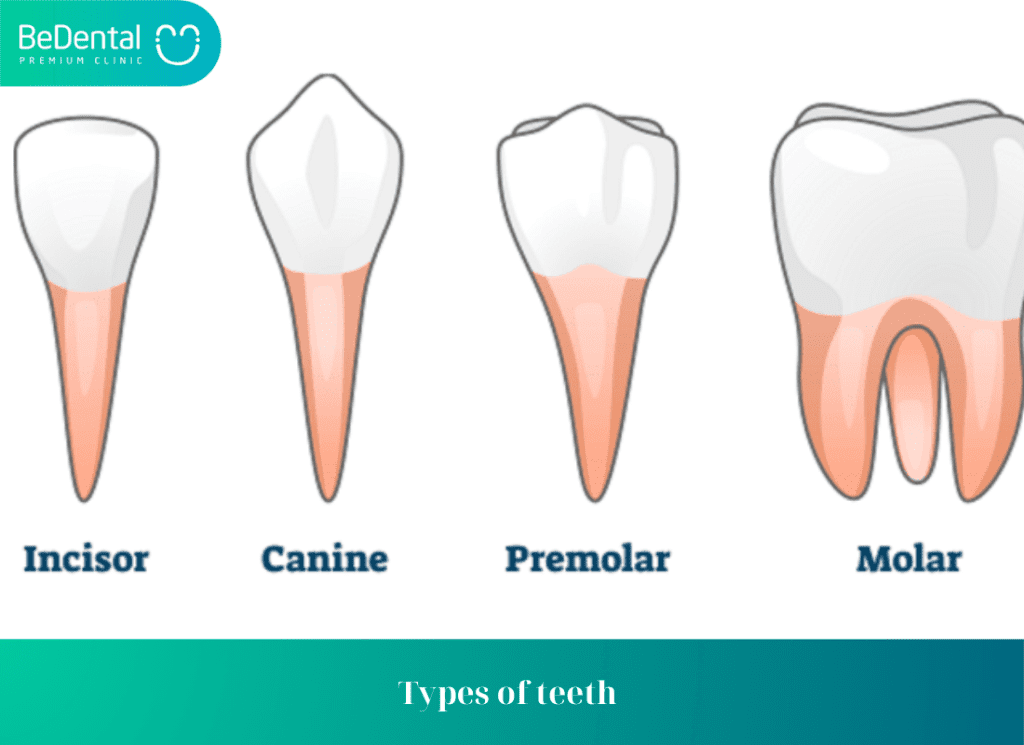
Molars (8 teeth)
The group of molars is located in the innermost position with the function of being the “grinding machine” for food that has been chewed by the incisors and canines. This is the largest group of molars and has a shape with protrusions on both sides and a central groove.
Anatomy of the structure of human teeth
The structure of a tooth typically includes the crown and the root. The crown is the part located above the gumline and is the most frequently used. The root is below the gumline and is connected to the jawbone to provide stability for the tooth.
When delving deeper into the anatomy of a tooth, it consists of components like:
- Enamel: It is the outer covering and also the part that gives color to the tooth. Enamel is composed of calcium phosphate, a component that helps strengthen the bone.
- Dentin: Located right beneath the enamel. This is a hard tissue with tiny tubules. When the enamel is damaged, the tooth becomes sensitive to heat or cold and can cause sharp pain.
- Pulp: It is where the tooth’s vitality is maintained by distributing nutrients through a network of blood vessels, nerve fibers, etc., located inside the tooth.
- Cementum: A smooth layer covering the tooth roots. Cementum connects to the jawbone through the periodontal ligament.
- Alveolar bone: Framework bones responsible for anchoring and supporting tooth roots. Insufficient or weak bone density can alter the tooth structure.
- Periodontal ligament: Connects the tooth roots to the jawbone. The periodontal ligament acts as a cushion to minimize direct impact on the jawbone during chewing.
How strong is the biting force of human teeth?
Research has shown that the biting force of human teeth is extremely strong, ranking among the animals with the strongest biting force.
According to studies, the average biting force of human teeth is 126 pounds per square inch and can even reach 168 pounds for the 7th tooth. Consequently, the total biting force on the entire jaw is approximately 5600 pounds per square inch.
When comparing these research figures with the millions of pressures that human teeth endure throughout life, including chewing, it becomes evident how resilient the tooth structure is.
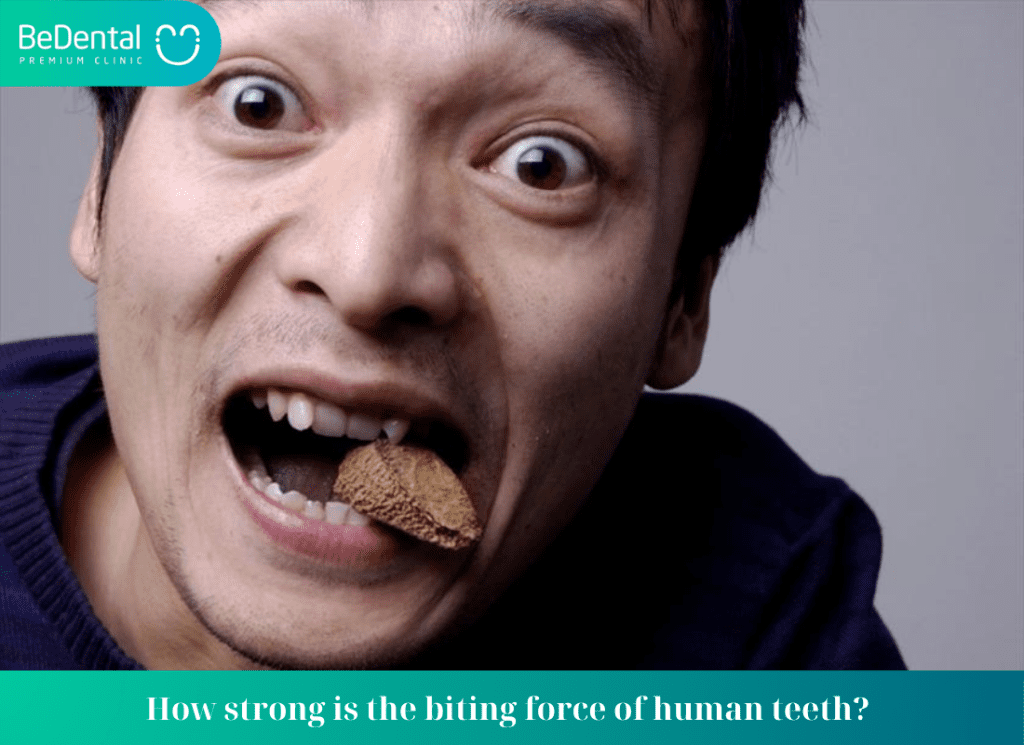
Although your teeth are strong and healthy, you should not neglect the importance of maintaining and caring for them. Pay attention to ensuring that your teeth are even stronger through proper care!
The human body is a “wonder” that needs to be protected. Hopefully, through this article, the question of how many teeth humans have has been answered satisfactorily.
See more: Are porcelain veneers necessary?
Most asked questions
How can I maintain good oral hygiene and care for my teeth
Maintaining good oral hygiene is crucial for overall dental health. Here are some essential tips to care for your teeth and maintain good oral hygiene:
- Brush your teeth at least twice a day: Use a soft-bristled toothbrush and fluoride toothpaste to thoroughly clean all surfaces of your teeth.
- Floss daily: Flossing helps remove food particles and plaque between teeth and along the gumline where your toothbrush may not reach.
- Use mouthwash: Consider using an antimicrobial mouthwash to help reduce plaque and prevent gum disease.
- Limit sugary and acidic foods: Sugary and acidic foods can contribute to tooth decay. Limit your intake of sugary snacks and drinks to protect your teeth.
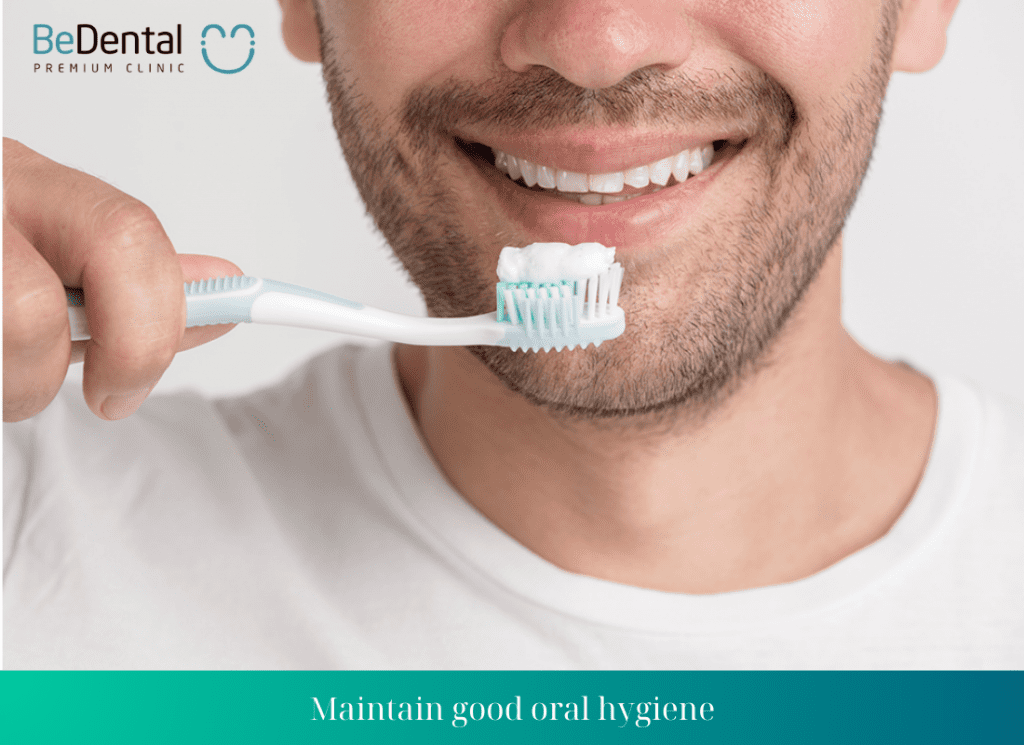
- Drink plenty of water: Water helps wash away food particles and bacteria that can lead to cavities and bad breath.
- Visit your dentist regularly: Schedule regular dental check-ups and cleanings to prevent dental problems and catch any issues early.
- Consider dental sealants: Dental sealants are thin protective coatings applied to the chewing surfaces of your back teeth to prevent decay.
- Avoid tobacco products: Smoking and using tobacco products can harm your oral health, leading to gum disease, tooth loss, and oral cancer.
- Wear a mouthguard: If you participate in contact sports, wear a mouthguard to protect your teeth from injury.
- Practice good overall health habits: Maintaining good overall health, including a balanced diet, regular exercise, and adequate sleep, can also contribute to good oral health.
When should children start seeing a dentist?
Children should start seeing a dentist by the age of one or within six months after their first tooth erupts. Early dental visits are important to monitor the growth and development of the child’s teeth, identify any potential issues early on, and establish good oral hygiene habits.
The dentist can also provide guidance on proper brushing and flossing techniques, fluoride treatments, and diet recommendations to promote healthy teeth and gums. Regular dental check-ups from a young age can help prevent dental problems and ensure proper oral health as the child grows.
Conclusion
In conclusion, the anatomy of human teeth is complex and fascinating, with different types of teeth serving various functions in the process of eating and communication.
Proper care and maintenance of teeth are essential to ensure their strength and health. Understanding the structure and function of teeth can help individuals appreciate the importance of dental hygiene in preserving their oral health.
The biting force of human teeth is remarkable, emphasizing the need for regular dental check-ups and proper oral care practices. Overall, the human body, including the teeth, is a marvel that deserves attention and protection to maintain overall health and well-being.
Tư vấn chuyên môn bài viết:
BÁC SĨ DƯƠNG THỊ THÙY NGA
BEDENTAL - TOP STANDARD DENTISTRY SYSTEM
In HANOI
Address 1: 7B Thi Sach St, Ngo Thi Nham, Hai Ba Trung Dist, Ha Noi. - 0934.61.9090
Address 2: 343 Tay Son St, Nga Tu So Ward, Dong Da Dist, Ha Noi. (Nga Tu So Cross) - 0934.61.9090
Address 3: CC2 Tower Nguyen Huu Tho St, Dinh Cong Ward, Hoang Mai Dist, Ha Noi. (Inside True Hope ) - 0934.61.9090
In HO CHI MINH
Address 1: 53 -55 -57 Pho Duc Chinh St, Nguyen Thai Binh, Dist. 1, Ho Chi Minh. - 0766.00.8080
Address2: 25, City Land urban area, Go Vap Dist, Ho Chi Minh - 0766.00.8080
Working: 9am - 6pm everyday
Website: https://bedental.vn/en/



